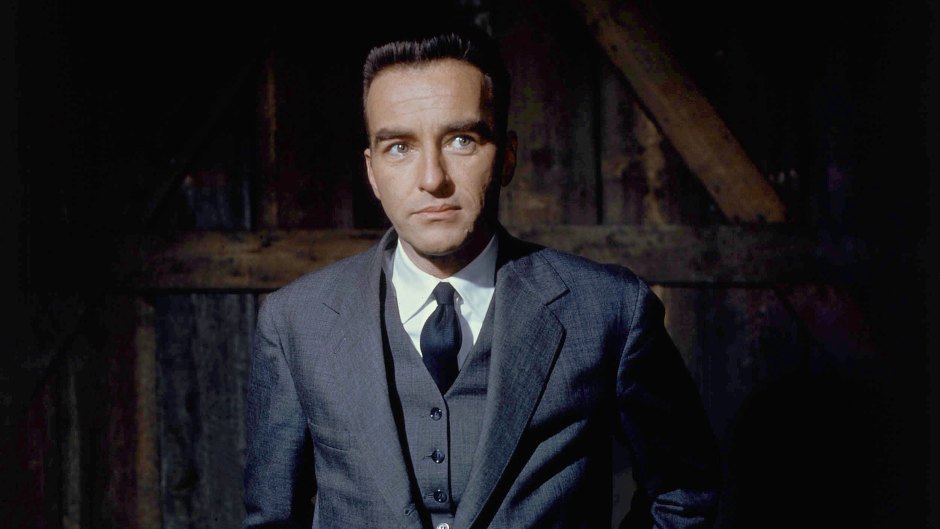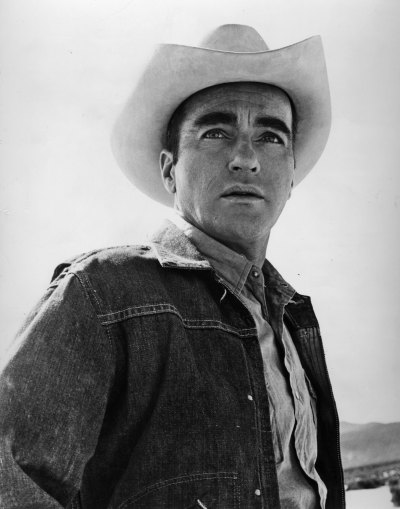
Kobal/Shutterstock
Actor Montgomery Clift Hated Having to ‘Conceal’ His ‘True Self’: ‘It Was a Terrible Burden’
Fans waited for two hours outside St. James’ Church on Madison Avenue to say goodbye to Montgomery Clift. Huge bouquets of flowers, including some from Elizabeth Taylor, flanked his coffin at the simple service in New York City, where his family, close friends and celebrities like Lauren Bacall bowed their heads in prayer.
In the decades since Monty’s death in 1966, his life has been viewed as another great Hollywood tragedy. Certainly, the loss of the four-time Oscar nominee at 45 is terrible, but it’s not his whole story.
“The thing about Monty was he wasn’t anything like people thought he was,” said Jack Larson, who played Jimmy Olsen on TV’s The Adventures of Superman. “He loved to have fun. He had a great sense of humor. As a person, he was nearer to Jerry Lewis on screen than he was to Montgomery Clift.”

Monty also wasn’t as tortured as his myth has suggested. “Most people think of him as a self-loathing homosexual who destroyed his life from guilt over being gay. That is a big misconception,” Charles Casillo, author of Elizabeth and Monty: The Untold Story of Their Intimate Friendship, tells Closer exclusively. “The thing that Monty did hate was having to conceal parts of his true self.”
Edward Montgomery Clift’s early life was extremely pampered. His mother, Sunny, had her children privately tutored and traveled with them throughout Europe. Monty became fluent in French and German at a very young age and loved reading but was an uninspired student. At 13, he discovered his gift for acting when his family relocated to Florida after losing their fortune in the 1929 stock crash.
He made his Broadway debut at age 15, and two years later, Hollywood came calling, dangling a starring role as Tom Sawyer before him. Monty turned it down. In time, he also rejected offers to star in East of Eden, On the Waterfront and Sunset Boulevard. “He didn’t want the studios to dictate the kinds of roles he would play,” says his nephew Robert Clift, a codirector of the 2018 documentary Making Montgomery Clift. “The old Hollywood system was breaking apart, and he was a major part of that.”
Monty also didn’t want to sign a contract that might contain a “morality clause” that would allow a studio to fire him for being gay. He made his first films, 1948’s The Search and Red River, as a free agent. Both were big successes.
“It was a terrible burden on him to be worshipped as a leading man all the while knowing that if his true nature were revealed, Hollywood and many of his fans would despise him,” says Casillo. “So, he had to hide it to survive.”
Just because he didn’t discuss his private life didn’t mean he was ashamed. He was raised in an atmosphere of acceptance. “Monty was a homosexual very early,” his mother said in the documentary. “Oh, I think it was about 12 or 13.”
Elizabeth Taylor, his A Place in the Sun costar, was one of a close circle of friends who knew all his secrets. Others included Jerome Robbins, the choreographer, who had a pre-stardom relationship with Monty in New York. Actor Roddy McDowall was a lover turned lifelong friend. Monty also had a fling with writer Truman Capote on location in Italy.
Close relationships with women like Elizabeth were a big part of his life, too. “He did, in his way, fall in love with her,” says Casillo. “He really, truly loved women, but he was only interested in men in bed. The impossibility between them caused the great, unrequited love of both of their lives.”
On May 12, 1956, Monty lost control of his car on the way home from a dinner party at Elizabeth’s house. “The accident really was the defining point in his career,” says Casillo. “He lost his magnificent looks, and his pill taking and alcoholism upped.”

Monty had been a hard drinker for many years at that point. He tried to gain sobriety and even attended AA meetings with Marlon Brando, but it never lasted for long. “Roddy McDowall said all they could really do was hold his hand to the grave,” says Casillo. “He was a self-destructive person and became more so through the years, but that didn’t stem from being homosexual.”
In the last period of his life, after Monty received a fourth Oscar nomination for his brief yet heartrending role in Judgment at Nuremberg, he was living back in New York with Lorenzo James. Away from the glare of the Hollywood spotlight, he found a bit of happiness.
“Lorenzo came into the picture when Monty was at his lowest. He got him going again. He still drank, but not as heavily. Lorenzo was one of the reasons,” says Monty’s nephew Robert. “They went to London to see Laurence Olivier together, ate together, sat in front of the fire together.”
Lorenzo also found Monty after he died of a sudden heart attack on July 23, 1966. Elizabeth later paid tribute to her dearest friend. “I loved this man,” she said. “Part of our friendship was our trust in each other and knowing that the secrets we shared were sacred.”







































